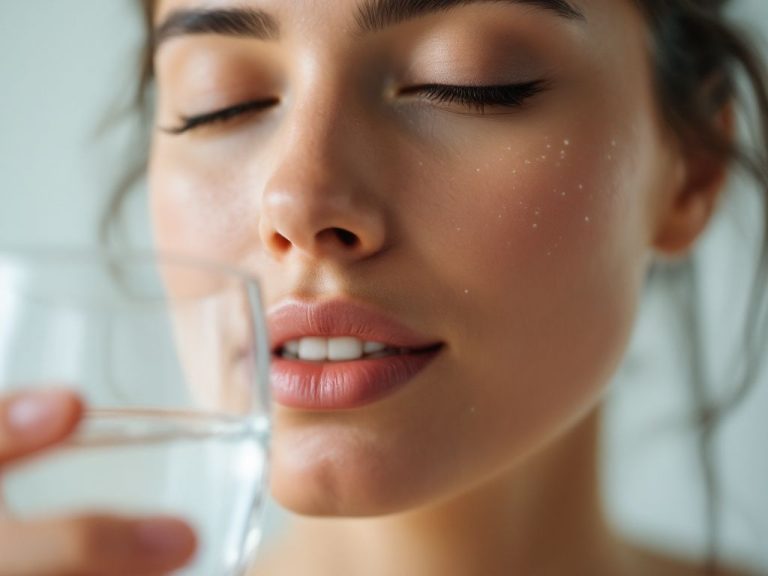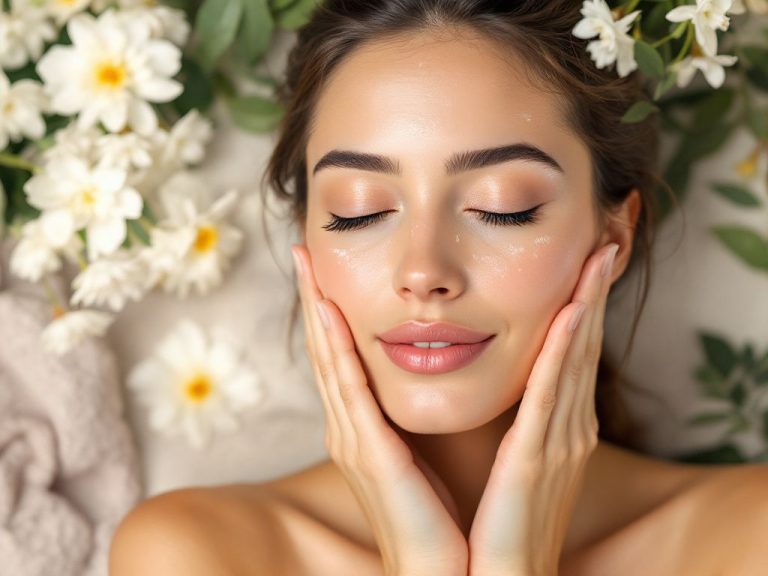Have you ever woken up, dragged yourself to the bathroom for your morning routine, only to be greeted by a new, unwelcome pimple on your face? Yeah, me too. My first reaction? Total dread. After all, there’s this whole stigma surrounding acne—it makes us feel less than, as if our clear-skinned friends are somehow on a different level of human achievement due to sheer luck of genetics or adolescence. But the thing is, let’s not pretend those pimples aren’t affecting more than just our skin. There’s a sneaky side effect that’s often understated: the psychological impact of acne.
Table of Contents
ToggleThe Emotional Rollercoaster of Acne
So, why does acne have such a strong emotional hold on us? Acne is really persistent. It’s just always there, like an unwanted song stuck in your head. And sure, it’s not life-threatening, but it sure knows how to taunt your self-esteem. It’s a classic case of kicking you when you’re down. Scrolling through your Insta feed, it feels like everyone else has airbrushed skin—thanks, filters and genetics—while you’re left grappling with your skin that somehow seems to rebel at every opportunity.
Understanding the Psychological Impact
At the root, acne can chip away at our mental wellness, steadily like waves eroding a cliffside. This constant struggle causes frustration, leading to embarrassment, anxiety, and even depression for some. Why is this heavy psychological impact happening? In part, it’s society’s fault. Crap, we’re constantly bombarded with images of perfection. Our emotions take hits every time there’s a commercial broadcast with impossibly clear skin or celeb influences pushing products with inescapably flawless faces. A recipe for feeling like you’ll never measure up.
An Overflow of Social Pressure
Let’s not kid ourselves—acne becomes more than just a skin issue because of the pressure to look “perfect.” Whether it’s the workplace, school, or a casual hangout, there’s always an element of scrutiny, often unspoken. The emotional effects here aren’t just surface level; it can make you feel isolated, like there’s an implicit judgment, leading to social withdrawal.
The Link Between Acne and Mental Wellness
It’s crucial to know that mental wellness and clear skin aren’t always buddies. The relationship is a two-way street. You’re feeling stressed and—boom!—here comes another breakout. Like some unforgiving peer who’s always got to have the last word. So, why stress about it then? Because it actually makes the situation worse, perpetuating an ingrained cycle of stress and flare-ups.

Being cognizant of this interaction is half the battle won. When we link our breakouts with our emotional state, we can start addressing them both. Sure, acne affects self-esteem leading to a bit of vulnerability, but understanding its place can guide you toward comprehensive mental and physical healing.
Keeping Up the Mental Check-ins
Observe your thoughts; acknowledge the voice that’s sometimes more critical than an unedited photo. Have your own back like you would for your best friend.
Spotting Signs and Taking Action
If anything in here hits close to home, maybe it’s time for a mental check-in. It’s like a weather forecast for your emotions. Think about little lint-removers from your mental wardrobe. Regularly scan for signs of increased anxiety or social withdrawal.
Write it out, if that helps! Journal down how you’re feeling—not just about the acne but everything surrounding it. Trust me on this one—unloading your mind onto paper often feels like the first warm cup of the day. Better yet, get in touch with your feelings like an old friend. Show up, regularly, and you’ll preserve that emotional clarity like a prized recipe.
Steps to Mental Wellness Amidst Acne
Here are a few tactics I swear by that scream, “It’s not just you. Let’s tackle this together!”
1. Balancing Self-Talk
The way you talk to yourself about acne matters immensely. Call it out. “This is just a stubborn pimple—it does not define me.” You know, the way you might lovingly scold a bothersome pet. Acknowledge your frustration and then do your best to shift focus to what actually characterizes you—the goofy laughter, kindness, and resilience.

2. Mindfulness Practices
Signing up for mindfulness doesn’t require a transformation; it can be as simple as taking five. Literally, take five minutes to focus on the present. Whether that’s mindful breathing or body scanning, the idea is to decrease stress reactions before they snowball into an acne trigger.
3. Community Support and Therapy
There’s real power in shared experiences. Engaging in support groups, whether physical or online, may bring unexpected relief. It’s more than just therapy; it’s solidarity. Who else is going to “get” shuffling into Sephora and comparing slickes with friends or the shared dread of a persistent under-the-skin cyst than fellow skincare warriors? It also keeps social bonds tight and reinforces emotional wellness amid life’s ups and downs.
4. Healthy Lifestyle Choices
Keeping ourselves mentally on the upside includes the daily grinding choices we make—yep, I’m talking about sleep, exercise, and nutrition. Simple in premise but infinitely easier said than done. A good sleep cycle balances our hormones sync, and a well-nourished body vibrates at a frequency that even juveniles in high pressure I’ve heard! Get moving, release those endorphins, and soak in the rejuvenated energy. It’s a payoff any soul craves.
5. Seek Professional Help
If it feels like your mental hurdles are towering, it’s time to call in the experts. Psychologists or dermatologists can guide you. Mental health professionals specialize in shushing that inner critic, while your dermatologist can provide a tailored plan that directly addresses the physiological part. Combined, that sounds like a redemption arc-in-the-making to me!
Common Mistakes to Avoid
Let’s nip these avoidable errors in the bud, like winding those clocks back on trivial stress.

Holding Superficial Guardrails Over Meaningful Support
The temptation is real to use sheer willpower to “power ’em through.” This steadfast independence often overlooks calling help, a step that can significantly improve mental health.
Neglecting the Roots of Emotional Effects
Don’t just obsess over scaly skin texture or pigmentation markings. Tiptoe past surface-level looks and explore the underlying emotional pulse to discover balanced recovery.
Attempting DIY without Research
Feel crafty? Homemade remedies can sometimes act like that one spicy dip—unexpectedly creating chaos! Always structure self-initiated skincare with a regulated backup plan approved by dermatological authorities. That includes knowing non-comedogenic ingredients or vegan formulations fitting for your skin’s delicacy.
Reflecting on the Journey
As I meander through my own daily endeavors of acne care, circling back to its emotional handshake with minimal self-sabotage sets a standard—a reminder that emphasizes: prioritizing mind care mirrors intent into our routine-driven experiences.
To sum things up, embrace your journey with acne as an opportunity to pivot toward mental resilience. It’s winding paths craving patience. Remember, the psychological impact of acne isn’t just about the surface—it encompasses rejuvenating fragments of faith, yourself included. As you navigate this voyage toward mental wellness, cultivate those mindful affirmations tailored according to plans rooted in empathy and active self-compassion.
Triumphs show up slowly, but then again—good things come to the resilient at heart!
Frequently Asked Questions
What is a psychological impact?
Psychological impact refers to the effects that external events, incidents, or experiences have on an individual’s mental state, emotions, and overall psychological well-being. This can result in changes in perception and behavior[1][3][5>.
How do external events affect psychological impact?
External events, such as natural disasters, disease outbreaks, or significant geopolitical changes, can significantly impact an individual’s psychological state. These events can induce feelings of fear, anxiety, and paranoia, and can shape personal identity and influence perceptions of reality[1][3][5>.
What are common psychological impacts on specific groups, such as healthcare providers?
Healthcare providers, particularly those on the frontline during crises like the COVID-19 pandemic, often experience severe psychological impacts including anxiety, depression, stress, insomnia, and post-traumatic stress disorder (PTSD). These impacts are exacerbated by factors such as increased workload, burnout, and lack of contact with families[5>.
How can psychological impacts be mitigated or managed?
Mitigating psychological impacts requires effective intervention support programs. This includes screening for mental health issues, providing preventive strategies at the institutional, provider, and client levels, and incorporating a gender perspective in support measures due to the higher prevalence of psychological problems among female healthcare providers[5>.
References- IADC Lexicon. (2010). Psychological Consequence. Oil and Gas Drilling Glossary.
- Fiveable. Psychological impacts. American Literature – 1860 to Present.
- PMC. (2022). Prevalence of Psychological Impacts on Healthcare Providers During the COVID-19 Pandemic in the Asian Region. PMC.








